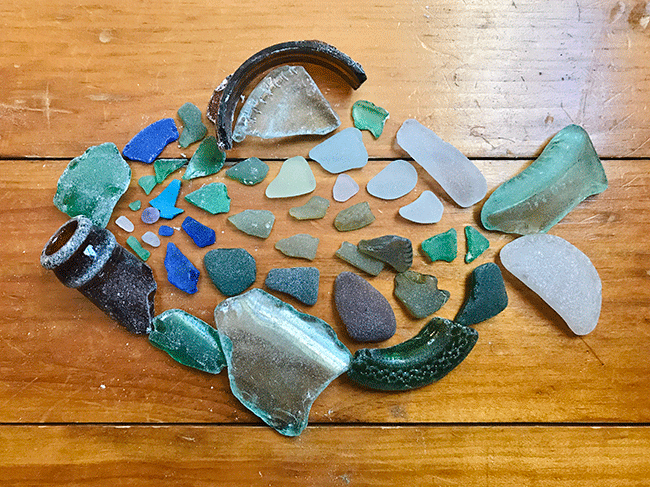Programs Blog
Interdisciplinary Week #3: Ocean Pollution

Etasha Golden, Oregon State Universityhttps://sea.edu/wp-content/uploads/2022/08/BlogPostPhotoTashS290Water.gif“When we talk about changing society, but we forget that we are part of that society.”
– shipmate Ashby Gentry 1-24-2020
“We should feel more a part of nature, not apart from it.”
– Neville Peat (guest speaker from Aoteaora New Zealand) 1-24-2020
It feels as though I have always known about marine pollution, for I can not remember a time of ignorance before. In Oregon the beaches are fairly clean, and growing up across the street from the beach, I visited them quite often. I remember my mom always brought a reusable grocery bag to the beach whenever we visited. That was just the norm- my small hands used to pick up any small brightly colored plastic I could find and turn it into my mother with pride. It was a game- see how much plastic you can find. A game that I very much enjoyed playing, but did not understand the root.
The knowledge of the severity and different forms of ocean pollution came with time. I understood that people thoughtlessly put stuff that didn’t belong in the ocean, but I couldn’t grasp why. But now I understand that people aren’t always intentionally dumping into the ocean, but they are also not always intentionally trying to stop it or reverse the damage either.
This past week, the theme was ocean pollution. This topic lead to passionate discussions throughout the week between my shipmates, guest speakers, and our teachers. There are different kinds of pollution and subsections of each of those. This week we focused on plastic and oil spill pollutants, less about nutrient pollution or other types of chemical pollution.
We watched the Deepwater Horizon film, and heard from scientists who were involved in estimating the volume of oil spilled. We voiced our frustration with this preventable oil spill tragedy. We also thought about what it means to be an environmental scientist and an environmental activist. And where on that spectrum would we want to be in our future careers. But when most people hear marine pollution they think of sea turtles eating plastic bags. Some of us did a plastic itinerary to see how much plastic we interacted with in one day. Many were shocked to see how much plastic consumption was related to their toiletries or shirts or pens or food packaging. Everyone talks about plastic straws at restaurants and plastic bags from grocery stores, but what about everything else? Try to think about everything plastic you are using everyday more often, and make conscious choices and choose alternatives.
I went to racing beach several times this week. Apparently it’s the best beach for sea glass around here. While I was collecting sea glass I was thinking about how sea glass is a form of marine pollution that people actually like. I made a mural shaped like a fish out of my sea glass, with a piece of plastic for eyeball (see photograph). On friday, I went to racing beach, and the sea looked like glass itself: smooth, flat, glossy. But when I tossed a stone into the water it made ripples (see photograph #2). Just like how each of us makes ripples to the amount of marine pollution in the ocean every day. But we can choose to make larger ripples or smaller ripples.
Pollution is complicated, “messy,” and this is one mess that needs a whole lot of teamwork to clean up. But simply cleaning it up won’t be enough, we also have to set up preventive actions to keep it from happening anymore.
– Etasha Golden, Oregon State University
Recent Posts from the Ships
- SEA Writer 2022, Magazines From the Summer SEA Quest Students
- PIPA Alumni Reconnect with Children of Kanton
- Woods Hole Welcomes Incoming Class of PEP Students
- Muhlenberg Student Finds Perfect Study Abroad Experience with SEA Semester
- SEA Student Describes Pacific Exploration for University of Denver News
Programs
- Gap Year
- Ocean Exploration
- High School
- Science at SEA
- SEA Expedition
- SEAScape
- Pre-College
- Proctor Ocean Classroom
- Protecting the Phoenix Islands
- Sargassum Ecosystem
- SPICE
- Stanford@SEA
- Undergraduate
- Climate and Society
- Climate Change and Coastal Resilience
- Coral Reef Conservation
- Marine Biodiversity and Conservation
- MBL
- Ocean Exploration: Plastics
- Ocean Policy: Marine Protected Areas
- Oceans and Climate
- Pacific Reef Expedition
- S-299 Summer Session
- The Global Ocean: Hawai'i
- The Global Ocean: New Zealand